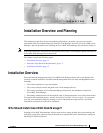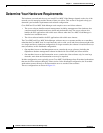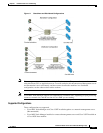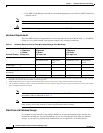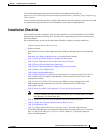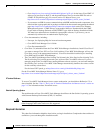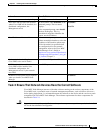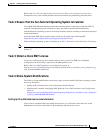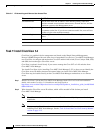
1-2
Installation Guide for the Cisco MGC Node Manager 2.5(2)
OL-4062-02
Chapter 1 Installation Overview and Planning
Determine Your Hardware Requirements
Determine Your Hardware Requirements
The hardware you need and the way you install Cisco MGC Node Manager depend on the size of the
network you are managing and the amount of data you collect. This section is designed to help you
determine your hardware requirements and software configuration.
Cisco EMF and Cisco MGC Node Manager each comprise server and client software:
• The server software handles network management, including management of the databases that
contain network information and store alarm and performance data. The server software also
handles the GUI applications with which users interact when the Cisco MGC Node Manager is
installed on a standalone server.
• The client software handles the GUI applications with which users interact.
The Cisco EMF and Cisco MGC Node Manager software runs on a separate machine or on machines
other than the Cisco MGC host. In a small network, such as a lab, server and client software might reside
on a single machine (a standalone configuration). In larger networks, the software is installed on two (or
more) machines, in this distributed configuration:
• One machine, known as the Management server, contains the server software (including the
ObjectStore database management software included with Cisco EMF) and client software
• One machine, known as the Presentation server, contains the client software only. In some large
networks, more than one Presentation server may be required.
In either configuration, users typically access Cisco MGC Node Manager from X terminal workstations
that run the Client software through a Telnet session. In the distributed configuration, the X terminal
workstations connect directly to the Presentation server to run the Client software.
The two configurations are shown in Figure 1-1.







